Programs
1.Railway Engineering Education Program
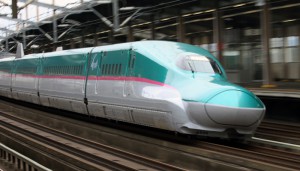
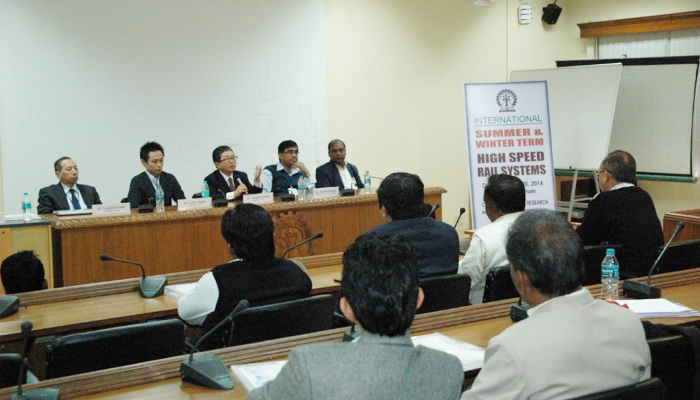
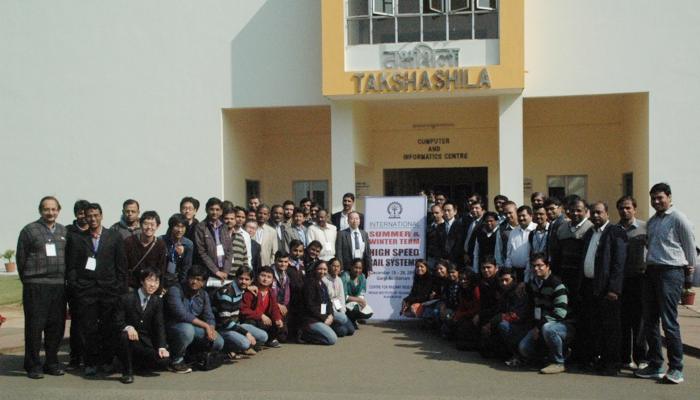 India and Japan agreed to introduce Japan’s bullet train (shinkansen) technology to India in December 2015. Renowned for its safety record, efficiency, and comfort, the shinkansen will open up a new dimension for economic transformation of India. Our Railway Engineering Education program gives engineers a chance to be a part of this transformation. In collaboration with IIT Kharagpur and its Centre for Railway Research, we offer lectures and workshops on high speed rail technologies, including vehicle dynamics, electric devices, train operation, railway bridges, and new materials. In December 2014, students and faculty members from the University of Tokyo participated in the winter term program on high speed rail held at IIT Kharagpur, which was coordinated by Professor Subhransu Roy and Professor Arghya Deb. More seminars and workshops are expected in the future.
India and Japan agreed to introduce Japan’s bullet train (shinkansen) technology to India in December 2015. Renowned for its safety record, efficiency, and comfort, the shinkansen will open up a new dimension for economic transformation of India. Our Railway Engineering Education program gives engineers a chance to be a part of this transformation. In collaboration with IIT Kharagpur and its Centre for Railway Research, we offer lectures and workshops on high speed rail technologies, including vehicle dynamics, electric devices, train operation, railway bridges, and new materials. In December 2014, students and faculty members from the University of Tokyo participated in the winter term program on high speed rail held at IIT Kharagpur, which was coordinated by Professor Subhransu Roy and Professor Arghya Deb. More seminars and workshops are expected in the future.
2.Social Infrastructure Education Program
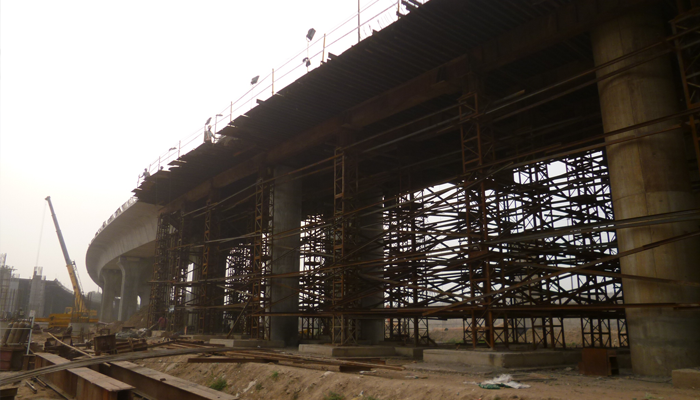 As one of the fast-growing emerging powers, India’s economy has grown by an average of 7.3 percent annually over the past decade. Indian government acknowledges that the country’s existing infrastructure is inadequate to support the rapid economic growth and has invested heavily on infrastructure building especially after 2000, but the gap remains huge. India needs to redouble its efforts to develop industrial and urban infrastructure that so far have not caught up with the pace of its economic growth. Furthermore, the infrastructure asset management is critical to ensure the safety, reliability and usability for the existing infrastructure.
As one of the fast-growing emerging powers, India’s economy has grown by an average of 7.3 percent annually over the past decade. Indian government acknowledges that the country’s existing infrastructure is inadequate to support the rapid economic growth and has invested heavily on infrastructure building especially after 2000, but the gap remains huge. India needs to redouble its efforts to develop industrial and urban infrastructure that so far have not caught up with the pace of its economic growth. Furthermore, the infrastructure asset management is critical to ensure the safety, reliability and usability for the existing infrastructure.
In this program, School of Engineering will cooperate with Indian Institute of Technology Delhi (IIT-D) and Indian Institute of Technology Kanpur (IIT-K) to focus on infrastructure maintenance into a neoclassical growth model and applies it to India, a developing country scenario. Generally, the process focuses on the later stages of a structure’s life cycle specifically maintenance, rehabilitation, and replacement. We will try to organize and implement these strategies to preserve and extend the service life of long-term infrastructure assets. Various academic programs are scheduled to promote the bilateral cooperation both for students and researchers, including intensive courses, joint thesis supervision, medium-term intern studying abroad and joint research on social infrastructure system.
3.Innovation Education Program
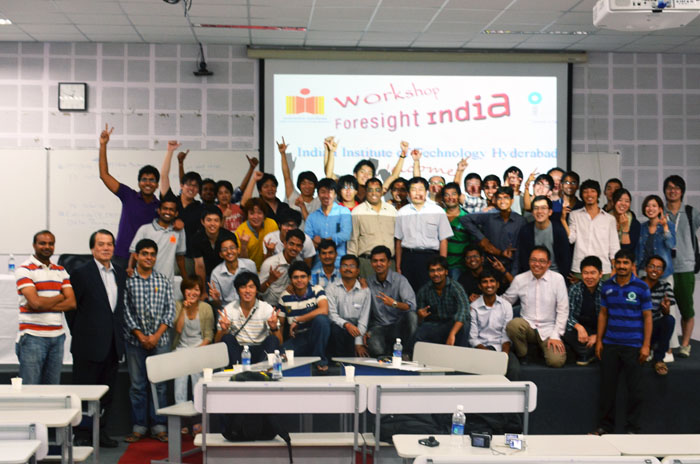
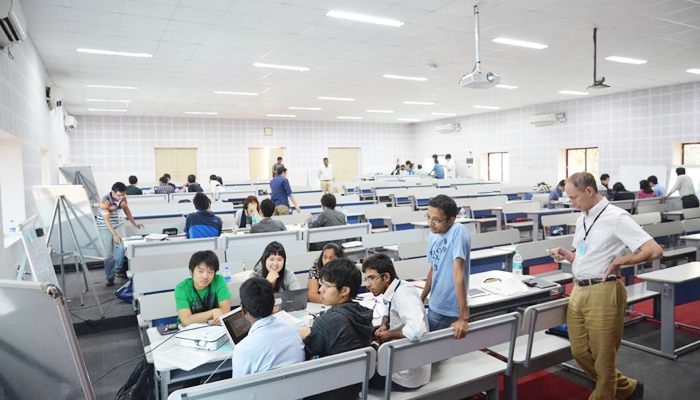 We are now confronted with larger uncertainty and need skills, mindset and motivation to create new paths for a desirable future. The innovation education plays a crucial role in developing young students’ and researchers’ skills and mindset to survive in this uncertain society. i.school at the University of Tokyo has been fostering innovative people who think outside the box and, therefore, discover, enhance, and realize new value, yielding them to take roles in pushing governments, businesses and academics not only in Japan, but also in Asia, and the world to innovate. In the “Re-inventing Japan Project” with India, the joint program of innovation education provides opportunities for students both in the University of Tokyo and IIT/IIM to develop the skills and mindset of innovation by utilizing i.school’s methodology. In AY2014, the joint innovation workshop “Service Innovation in India” took place in IIT Hyderabad on January 6-8, 2015. Students of the both institutes created new ideas of service innovation in the future India based on the real data collected through their field survey with middle-class Indian families. The participants learned how to utilize analogy to create new idea through this workshop, which is one of the most important skills for innovation. Moreover, the intensive group work experience to create innovative ideas makes students with different backgrounds and nationality great friends and the friendship continues for long.
We are now confronted with larger uncertainty and need skills, mindset and motivation to create new paths for a desirable future. The innovation education plays a crucial role in developing young students’ and researchers’ skills and mindset to survive in this uncertain society. i.school at the University of Tokyo has been fostering innovative people who think outside the box and, therefore, discover, enhance, and realize new value, yielding them to take roles in pushing governments, businesses and academics not only in Japan, but also in Asia, and the world to innovate. In the “Re-inventing Japan Project” with India, the joint program of innovation education provides opportunities for students both in the University of Tokyo and IIT/IIM to develop the skills and mindset of innovation by utilizing i.school’s methodology. In AY2014, the joint innovation workshop “Service Innovation in India” took place in IIT Hyderabad on January 6-8, 2015. Students of the both institutes created new ideas of service innovation in the future India based on the real data collected through their field survey with middle-class Indian families. The participants learned how to utilize analogy to create new idea through this workshop, which is one of the most important skills for innovation. Moreover, the intensive group work experience to create innovative ideas makes students with different backgrounds and nationality great friends and the friendship continues for long.
4.Technology Management Education Program
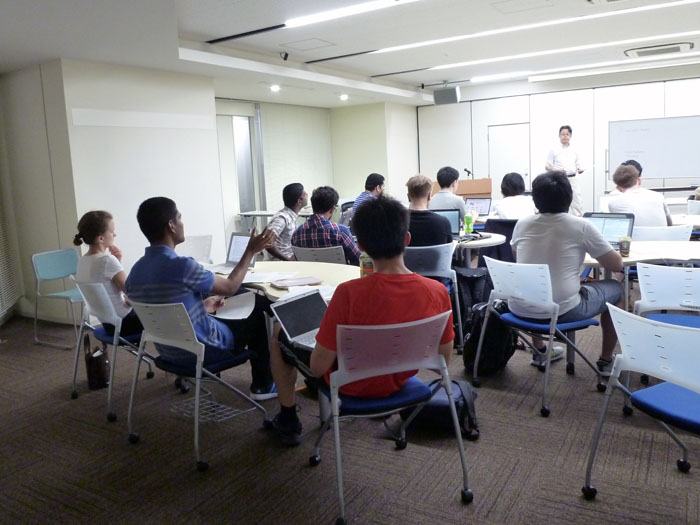 A collaboration in the area of technology management covers both research and education activities. First, we will develop case studies on high-tech Japanese firms investing in India to understand the issues related to international technology management strategies. At this moment, we are on the process of selecting companies to be targeted. One candidate is Nissan Motors, which made substantial investment in RNTBC (Renaut Nissan Technology Business Center) in Chennai. In addition, we will investigate pharmaceutical industry, taking the case of section 3(d) in Indian Patent Law, and its impacts on multinational R&D in India.
A collaboration in the area of technology management covers both research and education activities. First, we will develop case studies on high-tech Japanese firms investing in India to understand the issues related to international technology management strategies. At this moment, we are on the process of selecting companies to be targeted. One candidate is Nissan Motors, which made substantial investment in RNTBC (Renaut Nissan Technology Business Center) in Chennai. In addition, we will investigate pharmaceutical industry, taking the case of section 3(d) in Indian Patent Law, and its impacts on multinational R&D in India.
This case studies will be used for the contents for our educational programs, such as the courses “Global Business Strategy and Policy, offered by the University of Tokyo, and “The Rise of Asian Economies”, offered by Indian Institute of Management, Bangalore. In addition, the organization of student consultancy project for SMEs, offered by Indian Institute of Technology, Madras, will be opened for the students of the University of Tokyo to expand an international scope for both Indian and Japanese students. In return, some students in IIT-M and IIM-B will be invited to Japan for them to work together with Japanese student for some project works.
5.Information Science and Technology Education Program
 Graduate School of Information Science and Technology is seeking schemes of collaborative higher education with five Indian Institute of Technology (IIT) schools and Indian Institute of Management Bangalore (IIM-B). Among several efforts, the central one is smart building project at IIT Hyderabad (IIT-H). Smart building is an approach for the intelligent management of the building using Information and Communication Technology (ICT). It contributes the sustainable development of the city and university campus especially in term of energy management. Green University of Tokyo Project (GUTP) has developed both hardware and software to support smart building and these technologies are deployed and demonstrated in the University of Tokyo. We are working on the deployment of the technologies in IIT-H along with the smart campus project in IIT-H. We are deploying the electricity metering system in the IIT-H campus, because it is important for the energy management to measure the usage data of electricity. The power supply system is different in India and Japan in term of the stability, volume, the backup system and the recovery system. The measured data in the IIT-H campus by the metering system is valuable for the evidence-based development in order to design universally adaptable systems.
Graduate School of Information Science and Technology is seeking schemes of collaborative higher education with five Indian Institute of Technology (IIT) schools and Indian Institute of Management Bangalore (IIM-B). Among several efforts, the central one is smart building project at IIT Hyderabad (IIT-H). Smart building is an approach for the intelligent management of the building using Information and Communication Technology (ICT). It contributes the sustainable development of the city and university campus especially in term of energy management. Green University of Tokyo Project (GUTP) has developed both hardware and software to support smart building and these technologies are deployed and demonstrated in the University of Tokyo. We are working on the deployment of the technologies in IIT-H along with the smart campus project in IIT-H. We are deploying the electricity metering system in the IIT-H campus, because it is important for the energy management to measure the usage data of electricity. The power supply system is different in India and Japan in term of the stability, volume, the backup system and the recovery system. The measured data in the IIT-H campus by the metering system is valuable for the evidence-based development in order to design universally adaptable systems.

